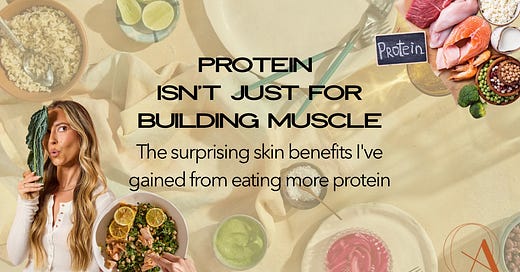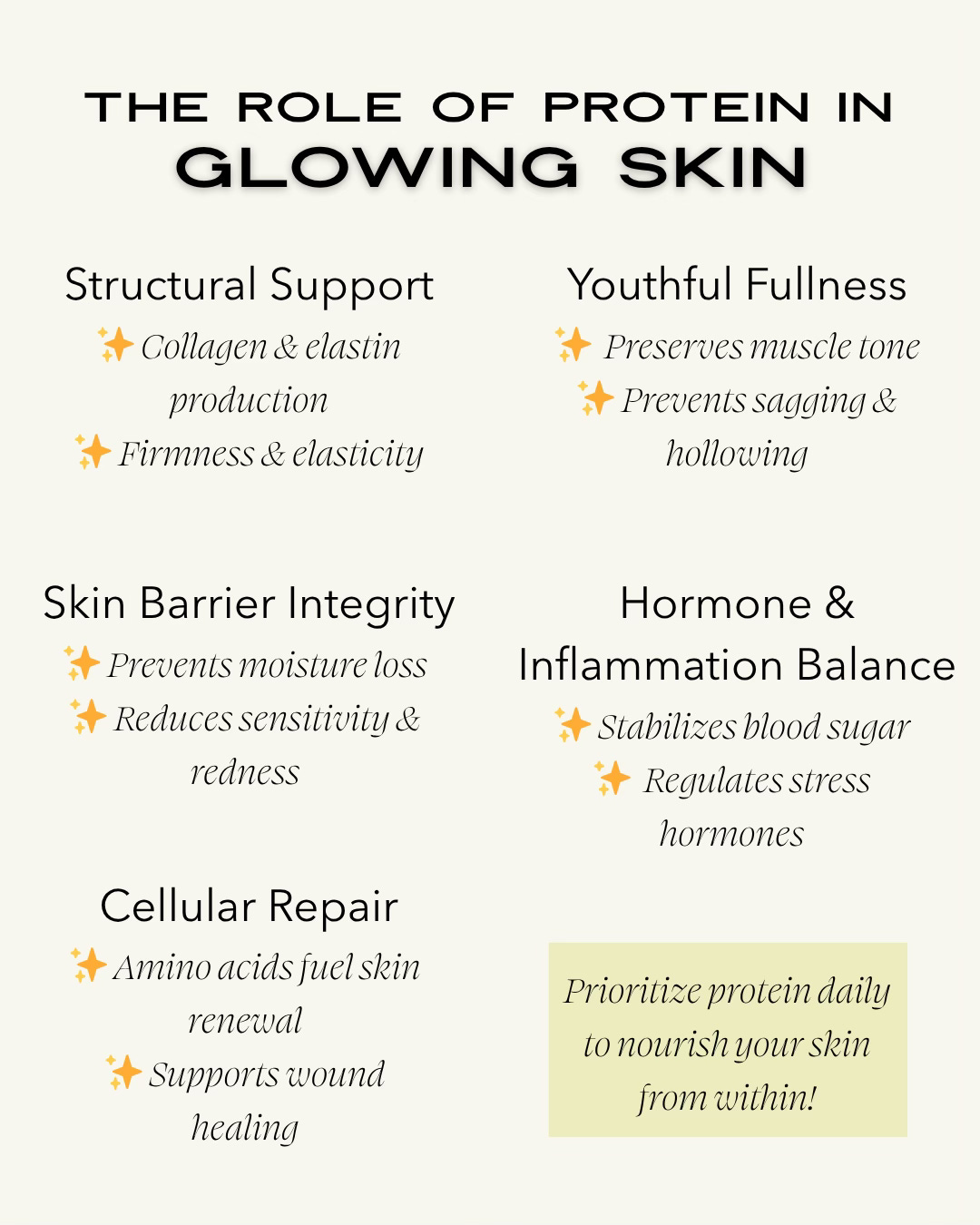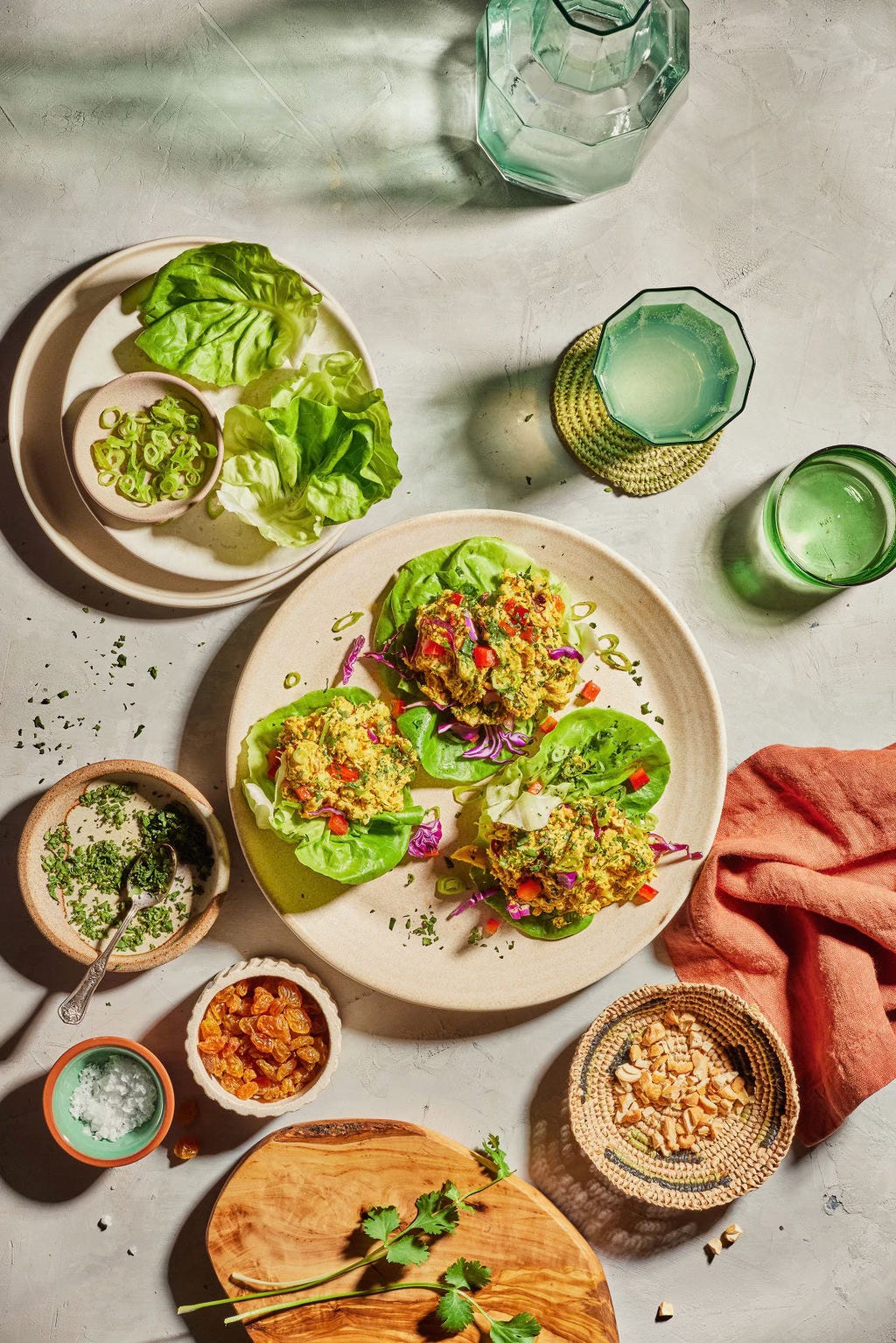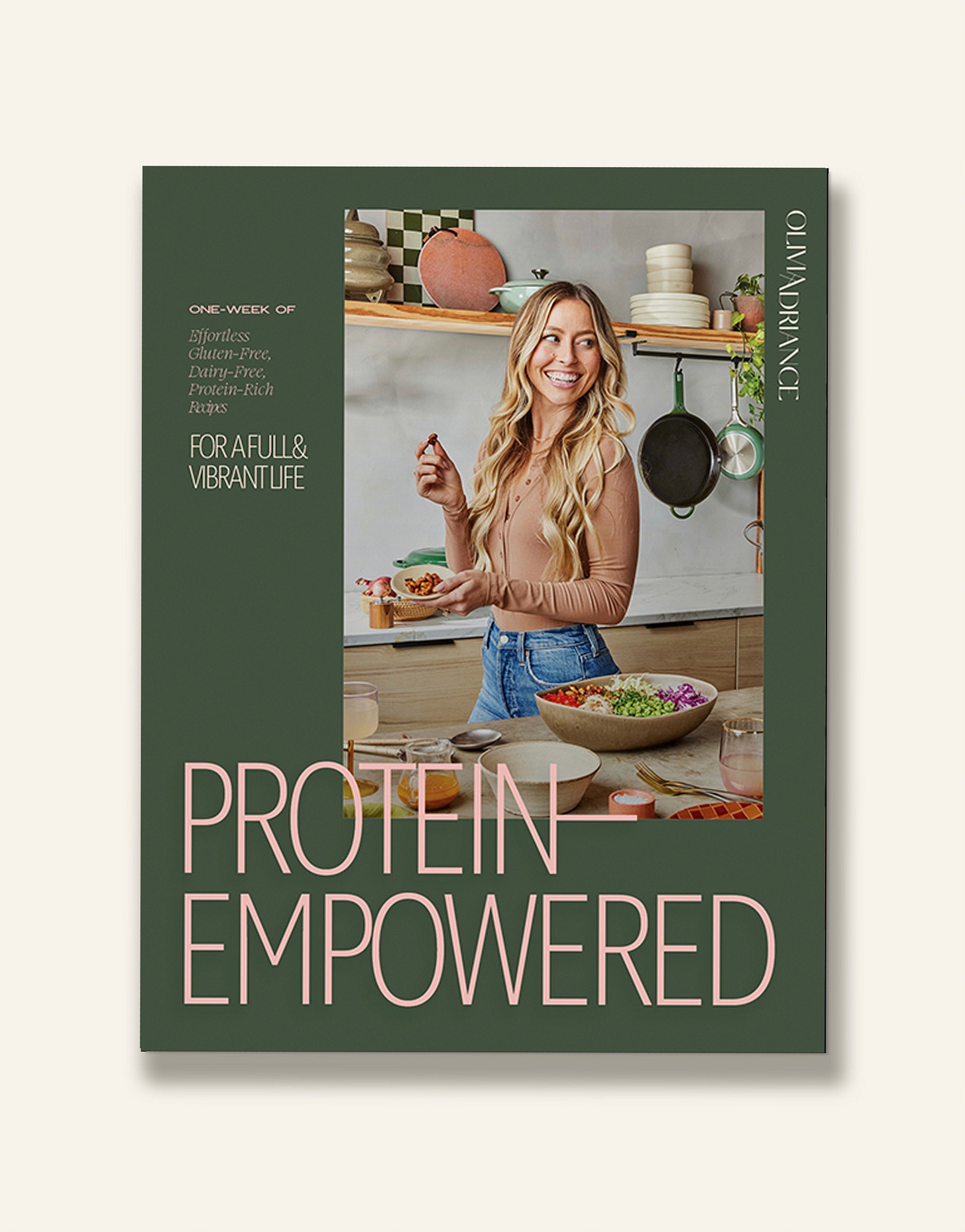Protein Isn't Just for Building Muscle
The surprising skin benefits I’ve gained from eating more protein
It seems like you can’t open Instagram these days without being inundated with information about protein. While it’s getting its moment in the sun right now, I’ve always taken a protein-forward approach to cooking and eating, and I’ve learned that protein isn’t just good for your muscles, it’s great for your skin.
If you’re someone who cares about your skin, like me, you likely have a pretty good handle on the basics. You probably wear SPF, you drink lots of water, you’ve got a few go-to products you trust (and maybe a few you splurged on after seeing them on social media).
I’ve always had a good skincare routine and spend a lot of time trying to find the best products, but as I started eating more protein, I noticed a real difference in my skin and I wanted to understand why. If you’ve been doing all the right things and still feel like your skin looks tired, reactive, or just not quite as vibrant as it used to—protein might be the missing piece.
Let’s dive into why protein is so essential for skin health, and how to make sure you’re getting enough to actually see and feel the difference.
Your skin is the largest organ in your body, and like every other organ, it needs nutrients to function well. At the most basic level, skin is built from protein, especially two key types: collagen and elastin.
Collagen gives skin its structure and firmness.
Elastin provides the elasticity that lets skin bounce back.
These proteins act like scaffolding beneath the surface. When you’re young, your body makes them in abundance. But as you age (or if you’re undernourished), production slows down. Without adequate raw materials—aka amino acids from protein—your body simply can’t replenish them at the same rate.
That’s when you start to notice:
Fine lines and wrinkles
Sagging or a “hollowed” appearance
Slower wound healing
That dull, tired look no amount of highlighter can fix
Topical collagen serums that target these issues can be a great place to start, but getting enough protein makes a real, lasting difference.
You’ve probably heard of the skin barrier—maybe even bought a serum to support it. But what is it, exactly?
The skin barrier is your body’s natural shield. It helps retain moisture and keeps irritants, bacteria, and allergens out. When it’s strong, your skin is soft, smooth, and calm. When it’s weak, you’re more prone to dryness, breakouts, redness, and sensitivity.
Here’s what I learned: the integrity of your skin barrier depends heavily on amino acids from dietary protein.
These amino acids help:
Rebuild the lipid layer that locks in hydration
Repair micro-tears or inflammation caused by environmental stressors
Maintain healthy turnover of skin cells
If your skin always feels dry, reactive, or “off,” even with a solid skincare routine, it might be because your barrier is running on empty.
Not all protein is created equal, and not all amino acids do the same thing. When you eat protein from foods like eggs, fish, legumes, or tofu, your body breaks it down into amino acids. These little building blocks have big jobs to do.
Here are a few that are especially important for your skin:
Glycine & Proline: Core components of collagen
Cysteine: Supports production of glutathione, a master antioxidant
Arginine: Boosts circulation and helps wounds heal faster
Methionine: A sulfur-rich amino acid essential for detoxification (especially helpful if you're acne-prone)
Without enough of these nutrients, your skin turnover slows down, oxidative stress builds up, and your natural glow gets harder to find.
If your skin is often breaking out when you’re stressed, flaring up after a sweet treat, or acting up around your cycle, you can thank your hormones for that. Hormones play a huge role in skin health, and protein is a major part of helping regulate these hormones.
Eating enough high-quality protein helps stabilize blood sugar, reducing spikes in insulin (a hormone that, when imbalanced, can lead to more oil production and clogged pores). It also helps modulate cortisol, your stress hormone, which is known to trigger everything from breakouts to rosacea to premature aging.
If you're skipping protein at breakfast and reaching for carbs instead, you might be setting yourself up for that 3 p.m. energy crash and a skin freakout.
Muscle tone is one of the most overlooked aspects of aging gracefully. As we get older, we naturally lose muscle mass (a process called sarcopenia). That includes the muscles in your face. When you lose that underlying structure, skin can start to sag or look more hollow, even if your skincare is top-tier.
Protein supports lean muscle, which not only boosts your metabolism and energy levels but also helps maintain that youthful plumpness in your cheeks, jawline, and under-eye area. It’s like internal scaffolding for your skin.
You can eat all the vitamin C and zinc in the world, but if you’re not eating enough protein, your body might not absorb or use them efficiently.
Many nutrients involved in skin health are co-dependent:
Vitamin C + Glycine = Collagen cross-linking
Zinc + Protein = Proper wound healing
Copper + Amino acids = Skin pigment and elasticity
Think of protein as the delivery vehicle that gets these nutrients where they need to go.
Here are some of my favorite sources that align with a whole-food, protein-forward and anti-inflammatory approach:
Eggs: Especially the yolks—rich in biotin and sulfur (note: eat with caution if acne-prone)
Salmon: Protein + omega-3s for extra skin hydration
Lentils & Chickpeas: Great for fiber, blood sugar balance, and amino acids
Turkey & Chicken: High in glycine, arginine, and other key players
Pumpkin seeds: Also high in zinc
Bone broth: A rich source of collagen and gelatin (great for skin repair)
There are so many delicious foods and meals that pack a high punch of protein, and many of them are simple to make. If you want to go deeper into protein-forward recipes that support skin health, my Protein-Empowered e-book includes simple, delicious meals designed to help you feel (and glow) your best.
Protein is a foundational element of healthy, resilient skin. From building collagen to supporting your skin’s barrier, regulating hormones, and enabling nutrient absorption, it plays a central role in how your skin functions and regenerates over time.
If you’ve been consistent with your skincare but haven’t seen the results you expected, it may be worth looking at your diet. Prioritizing high-quality protein throughout the day is one of the most effective, sustainable ways to support your skin from within.
Have any of you noticed a difference in your skin when you started eating more protein? Have any other food-forward skincare hacks? I’d love to hear about them!
One easy recipe I am planning to eat while I am recovering postpartum is Protein Overnight Oats. Oats are recommended postpartum for increasing milk supply due to their higher levels of iron and phytoestrogens. They are also a great source of fiber and will be so comforting in those early, foggy days.
In case you missed it, earlier this week I had the pleasure of joining Mari Llewellyn on the mic for her podcast, Pursuit of Wellness. We talked about my pregnancy journey as it relates to nutrition and cravings, my changing exercise routine, receiving unsolicited feedback, why I waited to announce my pregnancy, how I’m approaching maternity leave, and more. Listen here or watch here.
I recently did a media training session with my business coach and a few of my biggest takeaways from the session: (1) decide going in what you want to leave the audience thinking/feeling about you (2) craft 3-4 adjectives that reflect that perception (4) filter your answers through those adjectives (5) prepare 4-5 anchor stories that show how you reflect those adjectives (6) good interview questions provoke thoughtful responses so don’t be afraid to take a beat to think about your answer before responding — this pause will often get edited out.

















Just more reasons to hit your protein goal for the day!